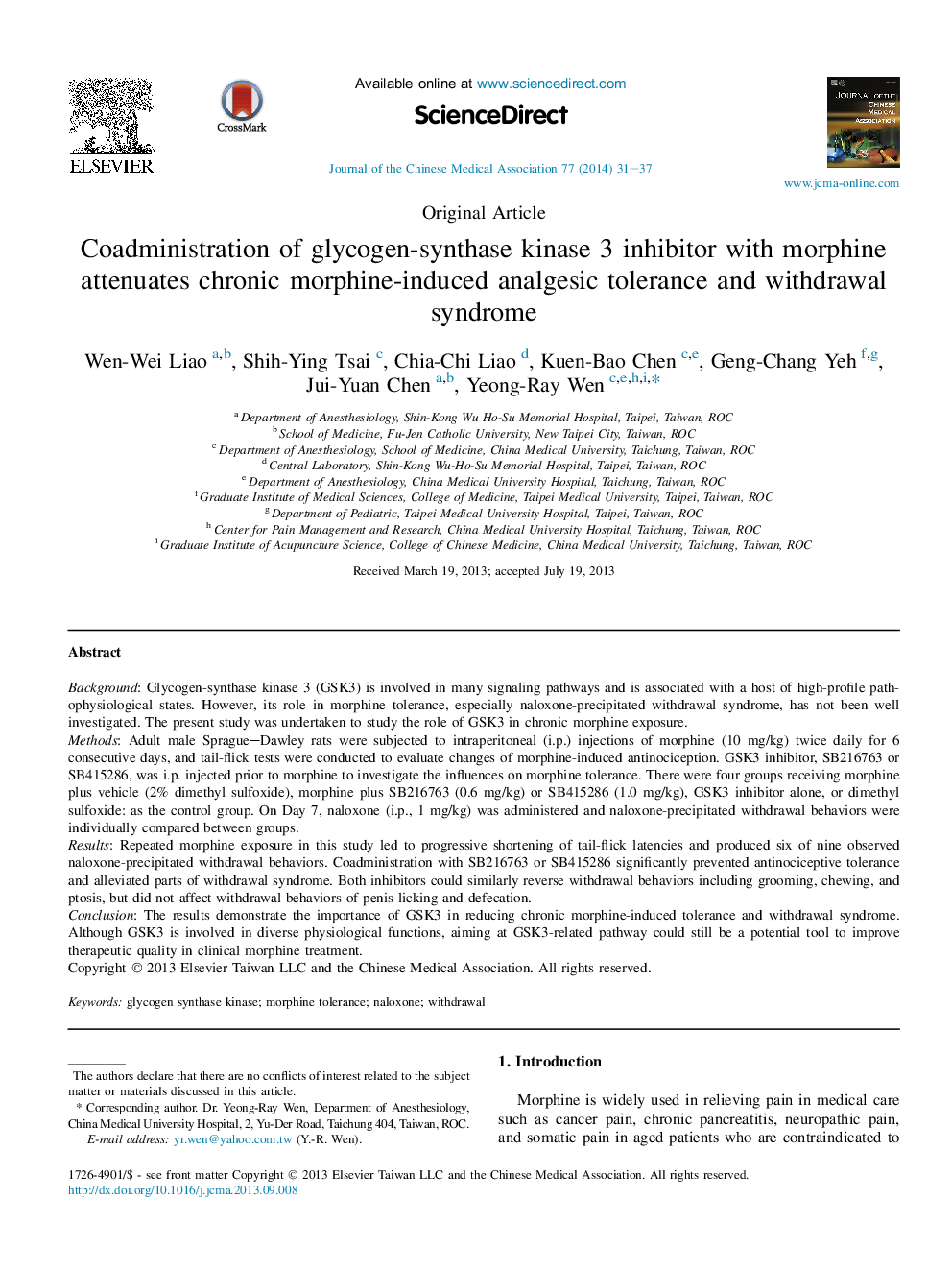| کد مقاله | کد نشریه | سال انتشار | مقاله انگلیسی | نسخه تمام متن |
|---|---|---|---|---|
| 3476253 | 1233248 | 2014 | 7 صفحه PDF | دانلود رایگان |
BackgroundGlycogen-synthase kinase 3 (GSK3) is involved in many signaling pathways and is associated with a host of high-profile pathophysiological states. However, its role in morphine tolerance, especially naloxone-precipitated withdrawal syndrome, has not been well investigated. The present study was undertaken to study the role of GSK3 in chronic morphine exposure.MethodsAdult male Sprague–Dawley rats were subjected to intraperitoneal (i.p.) injections of morphine (10 mg/kg) twice daily for 6 consecutive days, and tail-flick tests were conducted to evaluate changes of morphine-induced antinociception. GSK3 inhibitor, SB216763 or SB415286, was i.p. injected prior to morphine to investigate the influences on morphine tolerance. There were four groups receiving morphine plus vehicle (2% dimethyl sulfoxide), morphine plus SB216763 (0.6 mg/kg) or SB415286 (1.0 mg/kg), GSK3 inhibitor alone, or dimethyl sulfoxide: as the control group. On Day 7, naloxone (i.p., 1 mg/kg) was administered and naloxone-precipitated withdrawal behaviors were individually compared between groups.ResultsRepeated morphine exposure in this study led to progressive shortening of tail-flick latencies and produced six of nine observed naloxone-precipitated withdrawal behaviors. Coadministration with SB216763 or SB415286 significantly prevented antinociceptive tolerance and alleviated parts of withdrawal syndrome. Both inhibitors could similarly reverse withdrawal behaviors including grooming, chewing, and ptosis, but did not affect withdrawal behaviors of penis licking and defecation.ConclusionThe results demonstrate the importance of GSK3 in reducing chronic morphine-induced tolerance and withdrawal syndrome. Although GSK3 is involved in diverse physiological functions, aiming at GSK3-related pathway could still be a potential tool to improve therapeutic quality in clinical morphine treatment.
Journal: Journal of the Chinese Medical Association - Volume 77, Issue 1, January 2014, Pages 31–37
